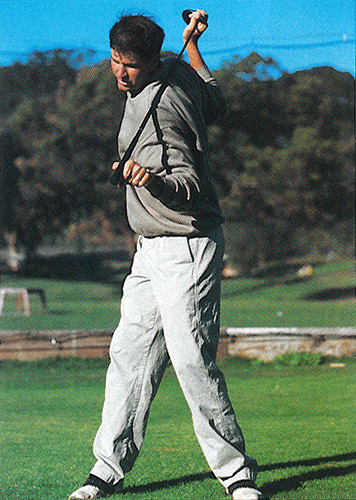Set the order of your students’ priorities for more effective golf instruction (Part 1)
A few years ago, I decided to evaluate my teaching program. While I felt that I effectively diagnosed my students’ mechanics, something still seemed to be missing. Some students never seemed to improve as much as I hoped.
I realized that much of golf instruction consists of the standard half-hour or so on the golf range and, in some cases, in the short game area. But when you think about all the things that go into playing the game, there has to be more to instruction.
I discovered several key factors that impact a person’s ability to play the game well: time management, an understanding of one’s own strengths and weaknesses, an ability to concentrate and stay focused, and the golf body, how it functions both on the golf course and the practice tee. This evolved into my six-spoke approach to better golf learning.
Spoke No. 1: The athlete’s body.
 I didn ‘t always believe this to be the most important part of teaching golf, but now I firmly believe that strength, cardiovascular ability and flexibility – what movements the body can perform or not perform and why – form the foundation for a good swing. A person’s physical condition can make it impossible to reach positions, conditions and/or balance points. It may not, in fact, be the golf swing at all that’s the problem – or at least not to the degree to which you might think. The athlete’s body precedes everything in its importance.
I didn ‘t always believe this to be the most important part of teaching golf, but now I firmly believe that strength, cardiovascular ability and flexibility – what movements the body can perform or not perform and why – form the foundation for a good swing. A person’s physical condition can make it impossible to reach positions, conditions and/or balance points. It may not, in fact, be the golf swing at all that’s the problem – or at least not to the degree to which you might think. The athlete’s body precedes everything in its importance.
Conditioning programs such as weight training and stretching are good for overall strength and flexibility, but in most cases, are not sports-specific enough to the actual golf swing to improve the golfer’s ability to swing the club properly. Bicep curls, bench presses and similar exercises will increase strength, but may not be the solution to inflexibility in certain golf-specific areas. A complex motor skill like the golf swing requires conditioning that is both detailed and specific to the deficiency in need of improvement. (The six-spoke approach starts with the golfer’s body.)
I have worked extensively with Skip Latella, an exercise and sports psychologist who developed a golf-
specific exercise program called Theragolf. This program promotes a sports-specific golf swing training method which addresses incorrect or physical limitations on the golfer’s body. I currently have more than 75 students in Latella’s program, and I’ve seen people make remarkable progress in their biomechanical ability to put the club in much more structured positions during their actual golf motion.
| YOU CAN GET A FREE VIDEO GOLF LESSON FROM TOM PATRI TO IMPROVE YOUR GAME!! Click Here. |







